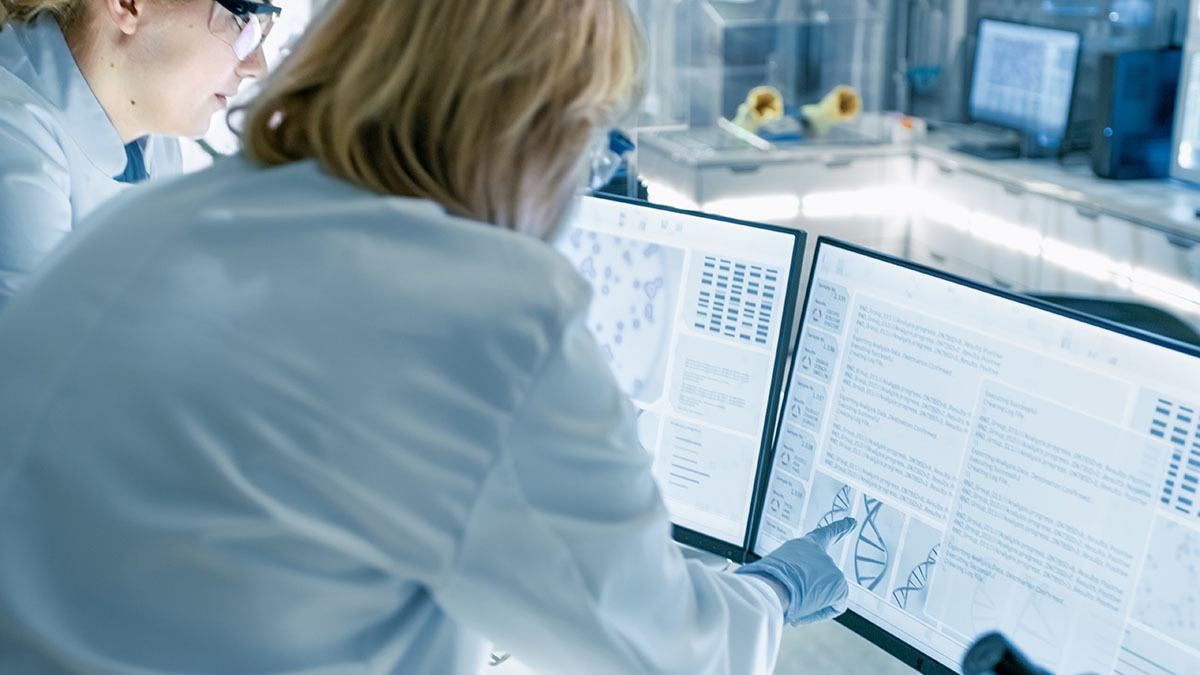
Coordinating the Cell Journey: Essentials in Early Clinical Development
Explore the benefits of a clinical logistics monitor to expertly guide the cellular starting material and subsequent therapy through the clinical trial journey.

In every early phase clinical trial, the transportation, chain of custody, environmental monitoring and subsequent analysis of biological samples are the cornerstones of a successful, robust and quality outcome. In combination, they provide confidence in dose escalation or protocol adaptation decisions, which ultimately benefit patients who often have critical and life-limiting diseases. This significance and focus are ever more apparent when the starting cellular material is imperative to drug product success.
Within cell therapy clinical trials, apheresis collections contribute to the specific constituents of the given therapy. Whether this is via an allogeneic (healthy donors) or autologous (patient) approach, the material collected is then manufactured and returned to patients for infusion therapy. Therefore, it is essential to the chain of custody to maintain real-time tracking of both the patient and the material. This level of traceability ensures the viability of the starting material and the safety of infusions.
The complex coordination between a multitude of invested stakeholders requires a specific skill set to expertly guide the cellular starting material and subsequent therapy through the clinical trial journey. Having a central and single point of contact whose focus is on the end-to-end chain of custody also allows the overall study project lead to focus on the delivery, and the clinical research associates (CRAs) to focus on the review of patient-level safety and quality of data — a combined approach that contributes to the focused aspect of each role and the mitigation of risk.
In Phase I cell therapy clinical trials that focus on the safety and tolerability within a given rare disease, tracking the patient journey and the cell material is essential. This personal and patient-centric approach to recruitment and retention also ensures a confirmed slot allocation within the cohort management planning. For patients with a rare disease entering a Phase Ib clinical trial, confidence in the management of their time and safety is paramount. This, in turn, yields adequate screening numbers and successful recruitment, ensuring each patient’s journey from screening to final follow-up is charted on an individual basis.
Timely and accurate cohort management subsequently leads to timely safety committee reviews, with the focus always on patient safety and possible dose escalation decisions.
Integration of this essential team member
The focus of logistics therefore encompasses coordination and communication with the following:
The cross-functional team
Team collaboration is essential for the mapping of each patient’s journey. The logistics monitor acts as an essential conduit between each of the functions, such as project management, clinical monitoring and medical monitors, in addition to the key site staff. As a conduit, their role is to assess the timelines together, being the liaison with the manufacturing organization and implementing risk management and mitigation. The role of the clinical logistics monitor (CLM) is a focal point of contact and an escalation point to the internal and external teams.
Key stakeholders
Communication throughout the patient journey and the recruitment cycle must be streamlined with key stakeholders who work together to develop and monitor the chain of custody process and are clear on logistics. Conducting mock runs before dosing is conducted is a key tool in risk mitigation.
The mock runs allow a full rehearsal of all personnel involved in the cell journey and chain of custody to ensure everyone at the site is familiar with the process, gaps are identified, and time is given for correction prior to the site initiation visit (SIV) and the critical patient journey.
Sites, manufacturers and depots
The logistics monitor provides training to site staff, manufacturers and depot personnel, establishing harmonization across multiple vendors and ensuring consistency of the process understanding. The CLM confirms and supports the process for patient slot allocation through the understanding of manufacturing timelines and the shipment and receipt of the supplies between all three parties, coordinating the chain of custody from the starting material and final drug product.
Couriers
To enable proactive issue resolution and timeline review, it is essential to have a detailed awareness of the locations and anticipate required travel distances and environments. In addition, oversight of the detailed tracking and traceability via GPS-enabled technology and monitoring the temperature and essential packaging requirements is a critical communication link between the CLM and the assigned courier.
Laboratories
Clear coordination for timely delivery of collection kits ensures there are no on-site delays once the allocated slot has been assigned and the patient’s journey has begun. Post-sample collection, the CLM is essential for coordinating sample logistics to various analytical laboratories, ensuring that timelines are tracked ahead of the critical safety review committee and dosing decisions and/or interim and final analysis data outputs.
The benefit of early development delivery
The ability to work with a logistics coordinator who takes ownership of the complex strategy provides benefits that extend to more than coordination. As an integral part of the project team, the logistics coordinator also provides added benefits.
As a dedicated resource with the focus and authority to make decisions in a complex supply chain, the focused attention provides bespoke prioritization and can contribute to the engagement and confidence of all essential stakeholders, such as clinical site staff, couriers, manufacturing personnel and, importantly, sponsors themselves.
A single point of contact creates an efficient and streamlined escalation point and dedicated liaison that reduces the financial impact and overburn of budget constraints, which may occur through the assignment of inadequate team resources.
Due to overall efficiencies and a proactive risk mitigation approach to the cellular supply chain, timelines are continuously adhered to, allowing smooth cohort transitions and the potential to expedite drug development timelines.
Without this critical team member, the distribution of responsible coordination across the multi-functional team would undoubtedly lead to project risks and issues. The assurance of a quality-controlled chain of custody of both patient and cell material can only be given with the integration of the logistics coordinator.
Enhance your cell therapy and rare disease clinical program with an early development services partner
Our dedicated, global and highly experienced clinical logistics monitoring team can assist you through the Phase Ib journey. Each member brings with them the right mix of early phase, global clinical development and cell and gene therapy industry experience to provide a consultative approach to successfully deliver at a data, patient and site level.
The PPD clinical research business of Thermo Fisher Scientific has a global network of Phase I clinical sites that offer access to a diverse pool of healthy volunteers and specialty populations across four continents. With more than three decades of experience conducting Phase I trials, and more than 800 Phase I studies conducted in the past five years, our streamlined services help establish proof-of-concept by reducing time and cost from your development timeline. Each step of the process is conducted with an eye toward supporting later-phase programs and regulatory submissions.
Explore our early development services
Recommended For You





